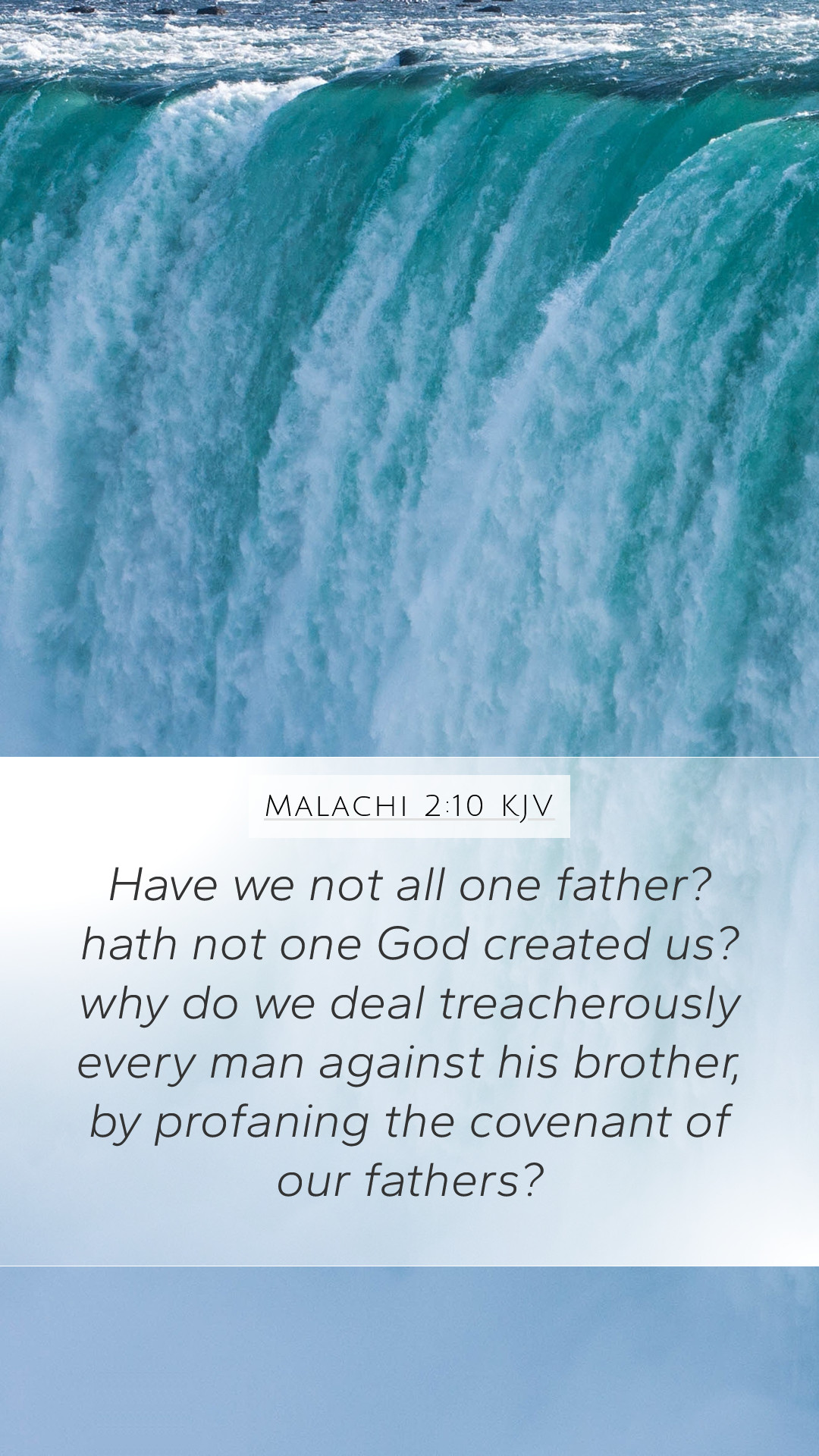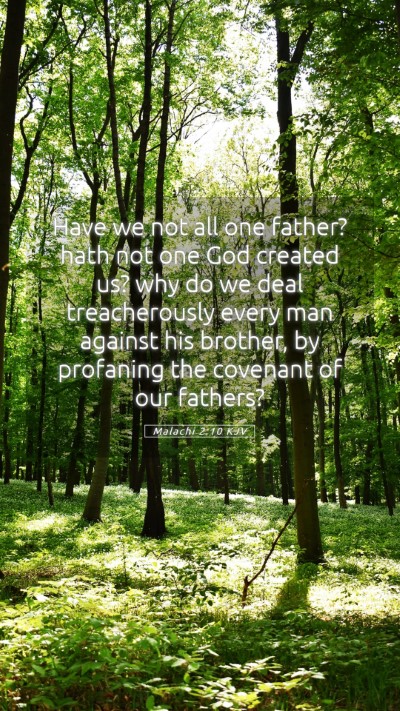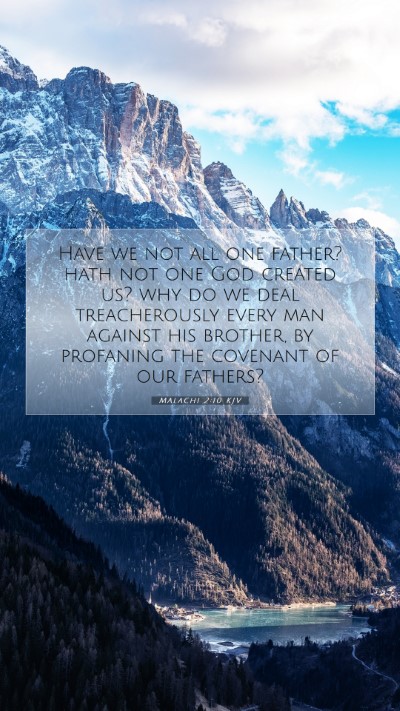Old Testament
Genesis Exodus Leviticus Numbers Deuteronomy Joshua Judges Ruth 1 Samuel 2 Samuel 1 Kings 2 Kings 1 Chronicles 2 Chronicles Ezra Nehemiah Esther Job Psalms Proverbs Ecclesiastes Song of Solomon Isaiah Jeremiah Lamentations Ezekiel Daniel Hosea Joel Amos Obadiah Jonah Micah Nahum Habakkuk Zephaniah Haggai Zechariah MalachiMalachi 2:10 Meaning
What is the meaning of Malachi 2:10?
Have we not all one father? hath not one God created us? why do we deal treacherously every man against his brother, by profaning the covenant of our fathers?
Malachi 2:10 Bible Verse Meaning
Understanding Malachi 2:10
The verse Malachi 2:10 prompts profound reflections on the nature of God, the covenant community, and the responsibilities of His chosen people. By examining this verse through various public domain commentaries, we can develop a deeper understanding of its meaning and implications.
Key Verse
Malachi 2:10: "Have we not all one father? hath not one God created us? why do we deal treacherously every man against his brother, by profaning the covenant of our fathers?"
Context and Analysis
To fully grasp the implications of this verse, we must consider its context within the book of Malachi and the historical background of the Israelite community. Malachi is addressing the people of Israel at a time of spiritual decline and moral decay. The prophet challenges them on various matters of faithfulness and integrity.
Public Domain Commentaries Insights
-
Matthew Henry's Commentary:
Matthew Henry emphasizes the familial aspect of the covenant community, suggesting that recognizing God as our common Father should foster unity among believers. He stresses that the treachery mentioned denotes a betrayal of both individual and collective relationships, urging the community to honor their covenant obligations.
-
Albert Barnes' Notes:
Barnes in his exposition notes the spiritual implications of calling God “one Father.” This implies that as God is our Creator, we must handle our relationships with one another with a sense of sacred commitment, illustrating that our actions toward each other reflect our love for God.
-
Adam Clarke's Commentary:
Clarke highlights the significance of the covenant referred to in the verse, stressing the moral duties that arise from being part of God's chosen people. He points out that the term “profaning” indicates a serious breach of faithfulness not only towards God but also towards each other as covenant partners.
Significance of the Verse
This verse serves as a moral and theological reminder of our obligations to each other within the community of faith. It challenges individuals to reflect on their interpersonal relationships, emphasizing that our actions can either honor or dishonor God’s covenant.
Application and Practical Insights
When considering the application of Malachi 2:10 to contemporary life, Christians are reminded to cultivate relationships that exemplify the love of God as our common Father. This verse can inspire thoughtful discussions in Bible study groups and serve as a foundational scripture in online Bible study sessions. Here are some insights:
- Recognizing Unity: We are all part of the same divine family, which should influence how we relate to one another.
- Upholding Covenant Responsibilities: Believers are called to be loyal and faithful not only to God but also to each other.
- Addressing Betrayal: The verse functionally becomes a warning against actions that damage relationships within the faith community.
- Opportunities for Reconciliation: Acknowledging our shared creation challenges us to resolve conflicts in light of our divine kinship.
Cross References
This verse connects with several other scriptures, emphasizing themes of unity and covenant relationships:
- Genesis 1:27 - Creation of mankind in God's image.
- Ephesians 4:6 - One God and Father of all, unifying the believers.
- Hebrews 8:9-10 - God’s covenant with His people establishing His laws in their hearts.
Conclusion
Malachi 2:10 invites each reader to ponder the depth of their commitment to both God and their fellow believers. By reflecting on this verse, individuals can cultivate a richer understanding of their faith and improve their communal interactions.
Further Study
For those who wish to dive deeper into Bible study insights related to treachery and covenant in the scriptures, consider the following study tools:
- Bible study resources: Use commentaries, such as those from Matthew Henry, Albert Barnes, and Adam Clarke.
- Bible study guides: Seek literature that examines the themes of faithfulness and community.
- Bible study lessons: Discuss the practical applications of living faithfully in community.


